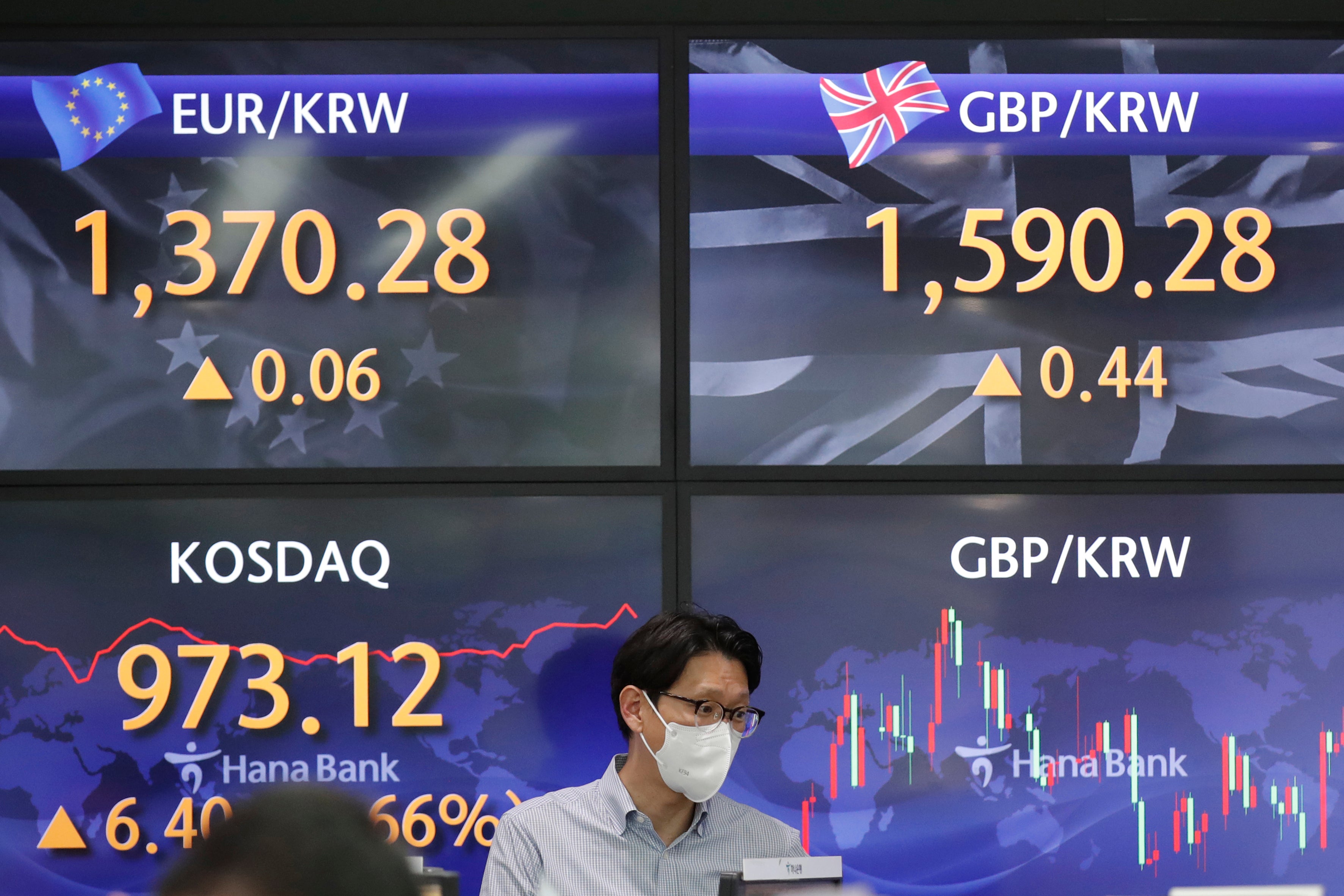Asian stocks mixed after Taiwan, Singapore anti-virus curbs
Asian stock markets are mixed after Taiwan and Singapore tightened anti-coronavirus restrictions and Wall Street turned in its biggest weekly decline in three months

Your support helps us to tell the story
From reproductive rights to climate change to Big Tech, The Independent is on the ground when the story is developing. Whether it's investigating the financials of Elon Musk's pro-Trump PAC or producing our latest documentary, 'The A Word', which shines a light on the American women fighting for reproductive rights, we know how important it is to parse out the facts from the messaging.
At such a critical moment in US history, we need reporters on the ground. Your donation allows us to keep sending journalists to speak to both sides of the story.
The Independent is trusted by Americans across the entire political spectrum. And unlike many other quality news outlets, we choose not to lock Americans out of our reporting and analysis with paywalls. We believe quality journalism should be available to everyone, paid for by those who can afford it.
Your support makes all the difference.Asian stock markets were mixed Monday after Taiwan and Singapore tightened anti-coronavirus restrictions and Wall Street turned in its biggest weekly decline in three months.
Shanghai and Hong Kong advanced, while Tokyo and Seoul declined.
Wall Street’s benchmark S&P 500 index rose Friday but ended the week down 1.4%.
Taiwan and Singapore announced restrictions on public gatherings and other curbs over the weekend following a rise in new infections, raising concern the region’s economic recovery might be pushed back.
“Concerns on virus resurgences may continue to linger in the region,” said Yeap Jun Rong of IG in a report.
The Shanghai Composite Index gained 1% to 3,524.04 after the Chinese government reported growth in retail spending, factory output and investment decelerated in April from the previous explosive rate.
The Nikkei 225 in Tokyo fell 0.8% to 27,867.96 while Hong Kong's Hang Seng advanced 0.6% to 28,204.14.
The Kospi in Seoul shed 0.4% to 3,139.93 while Sydney’s S&P-ASX 200 added 0.3% to 7,036.70.
India's Sensex opened up 1% at 49,207.64. New Zealand and Singapore gained while Bangkok and Jakarta retreated.
The 180 new coronavirus cases in Taiwan and 15 in Singapore were modest compared with India’s thousands. But the rebound in economies that had appeared to have the disease under control prompted concern. Malaysia, Thailand and the Philippines re-imposed controls earlier in response to rising infections.
Thailand, which had managed to keep outbreaks mostly under control by virtually closing its borders and imposing mandatory quarantines, reported nearly 10,000 newly confirmed cases on Monday. About two-thirds of them were in prisons.
“You don’t have much time to nip this in the bud before you could be dealing with an India-like situation,” said Robert Carnell of ING in a report. The economic impact “will depend in large part on how successful the measures now being rolled out end up being."
Wall Street’s gain Friday was led by technology stocks. Retailers, banks and industrial stocks also rose.
The S&P 500 rose 1.5% to 4,173.85. The Dow Jones Industrial Average added 1.1% to 34,382.13, ending down 1.1% for the week. The Nasdaq advanced 2.3% to 13,429.98 for a weekly loss of 2.3%.
That followed three days of heavy selling driven by investor worries about a possible rise in U.S. inflation. The major indexes had hit all-time highs the previous week.
Apple, Microsoft, Facebook, Amazon.com and Google’s parent company all rose 1% or more.
Government data Friday showed U.S. retail spending held steady in April at the previous month’s level, but that was below forecasts of a 1% increase over March.
In energy markets, benchmark U.S. crude rose 3 cents to $$65.40 per barrel in electronic trading on the New York Mercantile Exchange. The contract gained $1.55 on Friday to $65.37. Brent crude, used to price international oils, lost 3 cents to $68.68 per barrel in London. It closed $1.66 higher the previous session at $68.71.
The dollar held steady at 109.36 yen. The euro declined to $1.2129 from $1.2143.